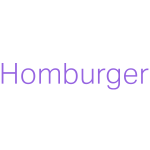Discussions surrounding the new distributed ledger technology (DLT) and its legal implications have generated important debates in the last years. In this context, notably in order to address some of the more controversial issues, Switzerland recently updated its legal framework to address the challenges and opportunities of DLT and the blockchain.
While many of these changes deserve a close attention, this article focusses on two developments which offer important opportunities for innovation: the introduction of a new category of negotiable securities conceptualised to facilitate the tokenisation of rights and obligations as well as the introduction of a new type of licensed trading platform for DLT-based products.
New ledger-based securities
While discussions surrounding the tokenisation of rights is neither new, nor exclusive to Switzerland, the recent legislative update introduced a new type of negotiable securities conceptualised to allow the electronic registration of rights, for instance on the blockchain, with similar functionalities and the same level of protection as traditional securities.
The new ledger-based securities are defined as rights which, in accordance with an agreement between the parties, are registered in a suitable register and may be exercised and/or transferred to others only via such register. In order to be considered as “suitable”, a register must in particular fulfil the following conditions:
1. It shall use technological processes to give creditors, but not obligors, power of disposal over their rights;
2. Its integrity shall be secured through adequate technical and organisational measures to protect it from unauthorised modifications;
3. The content of the rights, the functioning of the registration and the registration agreement must be recorded in the register or otherwise linked to it; and
4. Creditors must be able to view relevant information and entries, and check the integrity of their contents without the intervention of a third party.
|
|
“the intended purpose of these new securities is primarily to allow the issuance and transfer of rights directly on the blockchain or other similar DLT-based registers” |
|
|
While these requirements are technology-neutral, the intended purpose of these new securities is primarily to allow the issuance and transfer of rights directly on the blockchain or other similar DLT-based registers. In other words, the introduction of ledger-based securities anchors in the law the possibility to issue rights, such as company shares, directly as tokens whose ownership and transfer directly affect those of the underlying rights.
The general and principle-based nature of these requirements however means that any type of token and/or register may be eligible for the issuance of ledger-based securities, as long as it fulfills those requirements. This provides the new legislation with a certain level of flexibility which may allow it to adapt to potential new developments in DLT technologies and related products. Since their purpose is to represent rights and obligations however, it should be noted that pure cryptocurrencies, which do not have underlying claims, are ill-fitted for this purpose and would generally not qualify.
In summary, with the introduction of the new ledger-based securities, Swiss law aims at offering a tailor-made solution to enable the (direct) tokenisation of rights and obligations on the blockchain and aims to pave the way for innovative business models.
New DLT trading facilities
Next to traditional financial market infrastructures, such as stock exchanges and multilateral trading facilities, the Swiss lawmaker has introduced a new type of regulated platform, the DLT trading facility. As its name indicates, such facilities have a focus on dealing in DLT-based products, such as the new ledger-based securities outlined above, but also digital assets which do not qualify as securities under Swiss law, such as cryptocurrencies.
Essentially, DLT trading facilities are modelled after traditional multilateral trading facilities and subject to similar rules and requirements. An interesting feature of the new regime however is that a single license may suffice to offer not only multilateral trading services, but also some post-trading services, such as the clearing and settlement of trades as well as custody services.
Furthermore, while participants in traditional trading venues are usually limited to financial institutions, DLT trading facilities may accept a broad range of members, including in particular unregulated corporate entities and individuals, hence allowing for their direct participation without the need to resort to a qualified bank or securities dealer as is the case for traditional trading platforms.
|
|
“a flurry of new service providers promising to assist companies through such a transitions have made their debut on the market" |
|
|
As their name indicates however, the central attribute of DLT trading facilities is that it deals in DLT-based securities and related products. The exact types of products accepted by a specific facility is determined in an internal regulation, whose content must be approved by the Swiss Financial Market Supervisory Authority FINMA (FINMA).
Interestingly, limitations as to the type of tokens which may be admitted are not defined in the law, but only in implementing regulations and provides FINMA with an important degree of flexibility. This set up makes the regulation more adaptable to innovation and new trends. We note in particular that, under the current regulations, DLT trading facilities may generally not accept securities or other DLT-based products that significantly complicate the implementation of anti-money laundering regulation or undermine the stability and integrity of the financial system, as well as some types of derivatives.
Another factor which may be of interest to prospective market participants is that small undertakings may benefit from a lighter regulatory regime, to take into account the limited risks associated with the limited size of their operations.
In order to qualify as a ‘small’ DLT trading facility, one must in particular ensure that its activity stays below the following thresholds:
1. Annual trading volume of CHF250 million (approximately $272 million);
2. assets under custody of CHF100 million; and
3. annual settlement volume of CHF250 million.
While not revolutionary in its set up, this new category of licensed financial market infrastructure aims at providing the market with a new regulatory category, whose functionalities are better suited to meet the specific requirements of the trading and settlement of digital tokens, with the hope that it may offer new opportunities to service providers and investors alike.
First experiences and outlook
While the new provisions discussed in this article entered into force in the last months, market participants have started drawing on their potentials and they have already inspired new ventures.
Since the entry into force of provisions governing the new ledger-based securities on February 1 2021, several companies reportedly started tokenising their shares. At the same time, a flurry of new service providers promising to assist companies through such a transitions have made their debut on the market. In parallel, the Geneva-based Capital Markets and Technology Association (CMTA) is expected to publish an updated version of its standard documentation on the tokenisation of shares in line with the new law in the upcoming weeks. The availability of such standards should make it easier for further companies to register their shares on the blockchain. Still largely untapped, the potential use of the new securities to tokenise other types of financial instruments, such as bonds, structure products or derivative products, offers interesting possibilities.
Interesting developments may also be noted in relation to trading platform for DLT-based securities. The Swiss platform Taurus SA for instance, obtained a license as securities firm earlier this year, which allowed them to launch TDX, a multilateral trading facility for digital assets, in the spring. In early September 2021, SIX Digital Exchange AG was granted the first license to operate a central securities depository for securities based on DLT-technology, while its affiliate, SDX Trading AG, was approved as the first stock exchange for digital tokens. Also, recently, the Berner Kantonalbank, announced the upcoming launch of SME|X, its own platform for the trading of tokenised assets.
Overall, while it is still too early to fully assess the Swiss lawmaker’s attempt to adapt the legal framework to the challenges of DLT-technologies, it is generating keen interest from market participants and academics alike. As more projects are likely to come into fruition in the coming months, we can expect that the provisions set out in the articles will continue to generate important discussions.

Stefan Kramer
Partner, Homburger
T: +41 43 222 16 35
Stefan Kramer is a partner in Homburger’s financial market regulation as well as financing and investment products teams and the firm’s tech group.
Stefan was a member of a group of experts advising the Swiss Federal Government in relation to the new Swiss DLT legislation discussed in this article. He regularly advises on DLT-related regulations, asset-based financings (covered bonds and securitisations), banking regulation (including regulatory capital transactions) and derivatives markets regulations. Other areas of work include insolvency law and financial markets infrastructures.

Sandrine Chabbey
Associate, Homburger
T: +41 43 222 12 46
E: sandrine.chabbey@homburger.ch
Sandrine Chabbey is an associate in Homburger’s financial market regulation as well as financing and investment products teams.
Sandrine’s practice generally focuses on advising financial market participants on regulatory matters. She is also a member of the firm’s tech group and regularly advises on fintech and related matters.



